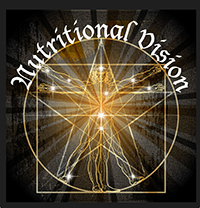– GreenMedInfo Summary
Click here to read the complete article.
Abstract Title:
Cranberry proanthocyanidins inhibit esophageal adenocarcinoma in vitro and in vivo through pleiotropic cell death induction and PI3K/AKT/mTOR inactivation.
Abstract Source:
Oncotarget. 2015 Sep 10. Epub 2015 Sep 10. PMID: 26378019
Abstract Author(s):
Laura A Kresty, Katherine M Weh, Bree Zeyzus-Johns, Laura N Perez, Amy B Howell
Article Affiliation:
Laura A Kresty
Abstract:
Cranberries are rich in bioactive constituents known to improve urinary tract health and more recent evidence supports cranberries possess cancer inhibitory properties. However, mechanisms of cancer inhibition by cranberries remain to be elucidated, particularly in vivo. Properties of a purified cranberry-derived proanthocyanidin extract (C-PAC) were investigated utilizing acid-sensitive and acid-resistant human esophageal adenocarcinoma (EAC) cell lines and esophageal tumor xenografts in athymic NU/NU mice. C-PAC induced caspase-independent cell death mainly via autophagy and low levels of apoptosis in acid-sensitive JHAD1 and OE33 cells, but resulted in cellular necrosis in acid-resistant OE19 cells. Similarly, C-PAC induced necrosis in JHAD1 cells pushed to acid-resistance via repeated exposures to an acidified bile cocktail. C-PAC associated cell death involved PI3K/AKT/mTOR inactivation, pro-apoptotic protein induction (BAX, BAK1, deamidated BCL-xL, Cytochrome C, PARP), modulation of MAPKs (P-P38/P-JNK) and G2-M cell cycle arrest in vitro. Importantly, oral delivery of C-PAC significantly inhibited OE19 tumor xenograft growth via modulation of AKT/mTOR/MAPK signaling and induction of the autophagic form of LC3B supporting in vivo efficacy against EAC for the first time. C-PAC is a potent inducer of EAC cell death and is efficacious in vivo at non-toxic behaviorally achievable concentrations, holding promise for preventive or therapeutic interventions in cohorts at increased risk for EAC, a rapidly rising and extremely deadly malignancy.
Academic Cite:
Laura A Kresty, Katherine M Weh, Bree Zeyzus-Johns, Laura N Perez, Amy B Howell. Cranberry proanthocyanidins inhibit esophageal adenocarcinoma in vitro and in vivo through pleiotropic cell death induction and PI3K/AKT/mTOR inactivation. Oncotarget. 2015 Sep 10. Epub 2015 Sep 10.
Pubmed-Cite:
Laura A Kresty, Katherine M Weh, Bree Zeyzus-Johns, Laura N Perez, Amy B Howell. Cranberry proanthocyanidins inhibit esophageal adenocarcinoma in vitro and in vivo through pleiotropic cell death induction and PI3K/AKT/mTOR inactivation. Oncotarget. 2015 Sep 10. Epub 2015 Sep 10.PMID: 26378019
GMI-Cite:
Laura A Kresty, Katherine M Weh, Bree Zeyzus-Johns, Laura N Perez, Amy B Howell. Cranberry proanthocyanidins inhibit esophageal adenocarcinoma in vitro and in vivo through pleiotropic cell death induction and PI3K/AKT/mTOR inactivation. Oncotarget. 2015 Sep 10. Epub 2015 Sep 10.PMID: 26378019
Article Published Date : Sep 09, 2015
Study Type : Animal Study, In Vitro Study
Additional Links
Substances : Cranberry : CK(349) : AC(69), Cranberry Proanthocyanidins : CK(8) : AC(6)
Diseases : Esophageal Cancer : CK(506) : AC(85)
Pharmacological Actions : Antiproliferative : CK(2546) : AC(1685), Autophagy Up-regulation : CK(108) : AC(65), Cytotoxic : CK(76) : AC(60)
Additional Keywords : Dose Response : CK(1519) : AC(574), Plant Extracts : CK(7645) : AC(2539)

No Comments Yet